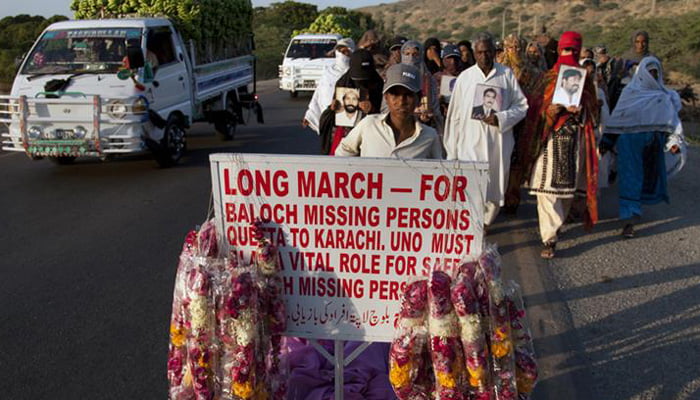
Delhi: India on Wednesday raised the issue of human rights violation in PoK at the United Nations and said that Pakistan was fuelling unrest in Kashmir Valley.
India also raised the issue of Balochistan for the first time before the UN.
Responding to statement by Pakistan, Ajit Kumar (Ambassador and Permanent Representative at the UN), during 33rd Session of UNHRC said, “It will be in the fitness of things if Pakistan focuses its energies on improving human rights situation within Pakistan and PoK.”
He added, “Also the use of phrase ‘Indian-administered Kashmir (IOK) is an artificial one. Our Kashmir, J&K which is an integral part of India, represents all sections of our people unlike PoK.
Kumar pointed out that Pakistan’s dismal track record was well known and many countries have repeatedly called upon Pakistan to end cross- border infiltration, dismantle the terrorism infrastructure and stop acting as an epicentre of terrorism.
On the other hand, he said that India’s credentials as a peaceful, democratic, pluralistic society that was deeply committed to the welfare of its people were well established.
On the contrary, Pakistan was characterised by authoritarianism and absence of democratic norms and widespread human rights violations across the country including Balochistan, Kumar said.
Later he was quoted as saying by ANI, “I made it very clear that entire J&K is integral part of India, what remains is vacation of illegal territory occupied by Pakistan,” and added, “Explained in my statement problem of Pakistan sending terrorists across borders who mingle with crowds and we’re trying to tackle that.”
No comparison between J&K and PoK: India
Yesterday too, India, reacting to comments by UN High Commissioner for Human Rights on the situation in Jammu and Kashmir, had that Pakistan-occupied Kashmir had become a hub for the global export of terror.
Noting that the commissioner had received ‘conflicting narratives on the cause for the confrontations’, India had pointed out – “It would be recalled that the present situation arose from the death of a self-acknowledged commander of the terrorist organization, Hizb-ul-Mujahideen, who was wanted for several terrorist acts. It was further aggravated by sustained cross-border terrorism emanating from Pakistan. Terrorism is the grossest violation of human rights and should be so acknowledged by any impartial and objective observer. The high number of casualties sustained by Indian security forces is a reflection of the tremendous restraint they have displayed in difficult circumstances.”
The statement by Ministry of External Affairs further had stated, “As regards the suggestion for a visit of a mission to both sides of the Line of Control, we would underline that there is no comparison between the situation in the Indian state of Jammu and Kashmir and Pakistan-occupied Kashmir. The former has a democratically elected government, while the latter has seen a Pakistani diplomat arbitrarily appointed as its head. The Indian state of Jammu and Kashmir is part of a pluralistic and secular democracy, where freedoms are guaranteed by an independent judiciary, an active media and a vibrant civil society. In contrast, Pakistan-occupied Kashmir is administered by a ‘deep state’ and has become a hub for the global export of terror.”
“The issue of an external mission was considered by the All-Party Conference on 12 August 2016 that met to discuss the situation in Jammu and Kashmir. It was unanimously felt that Indian democracy has all that is required to address legitimate grievances. Accordingly, an all-party delegation visited Srinagar. Despite cross-border terrorist infiltration that saw an encounter only yesterday, Government remains fully engaged in normalizing the situation as soon as possible,” MEA had added.
Grant ‘unconditional access’ to both sides of Kashmir: OHCHR
OHCHR had yesterday asked India and Pakistan to grant it ‘unconditional access’ to both sides on the Line of Control to establish an ‘objective assessment’ of the situation in Kashmir.
In his opening statement at the 33rd session of the Human Rights Council in Geneva, commissioner Zeid Ra’ad Al Hussein had said, “Two months ago, I requested the agreement of the Governments of India and Pakistan to invite teams from my Office to visit both sides of the Line of Control.”
“We had previously received reports, and still continue to do so, claiming the Indian authorities had used force excessively against the civilian population under its administration. We furthermore received conflicting narratives from the two sides as to the cause for the confrontations and the reported large numbers of people killed and wounded. I believe an independent, impartial and international mission is now needed crucially and that it should be given free and complete access to establish an objective assessment of the claims made by the two sides,” he had added, as per PTI.
Hussein had further said that Pakistan had already handed over a letter formally inviting an OHCHR team to the Pakistani side of the line of control, but in tandem with a mission to the Indian side.
“I have yet to receive a formal letter from the Government of India. I, therefore request here and publicly, from the two Governments, access that is unconditional to both sides of the line of control,” he had said.
[Source:-Zee News]



